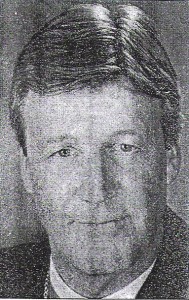The National Council of Churches yesterday installed former United Nations Ambassador Andrew Young and an advertising executive-turned-bishop as top leaders in a four-year effort to increase its profile as the nation’s main ecumenical body.
Episcopal Bishop Craig B. Anderson, 55, a former adman and U.S. Army veteran who became a bishop to American Indians and then a seminary president, was installed as the two-year president of the council of 34 Protestant and Orthodox denominations.
Mr. Young, a United Church of Christ minister, was unanimously chosen by 350 delegates as president-elect. He will advise Bishop Anderson and succeed him as president in 2000.
“The National Council of Churches has to regain its voice as not captive to one ideology or another,” said Bishop Anderson at a news briefing. “As an old communicator,” he added, “I will be able to do that.”
Bishop Anderson, who asked that the annual NCC annual meeting be held in Washington and that his installment be conducted at the Washington National Cathedral last night, was a marketing manager at Proctor and Gamble from 1966 to 1972.
But NCC delegates say they know him best for his skills in communicating faith, social concerns and community action.
“It won’t be just show,” said Bishop H. George Anderson, head of the Evangelical Lutheran Church in America. “He also has content.”
The council, formed in 1949, has lost prominence in the past two decades as conservative churches set social agendas, mainline Protestantism lost membership and NCC funding dwindled.
Still, in recent years, the NCC has had the ear of the White House and leads in Bible translation and Sunday school and relief work.
Since 1995, the council has done more to support weak churches abroad and also led the campaign against U.S. church burnings, said past-President Bishop Melvin Talbert, a black United Methodist.
“The population said we do not tolerate this kind of thing happening in America,” he said of church burnings, also taking credit for galvanizing the administration on the issue.
The ecumenical council, however, keeps struggling with how to limit its issues, avoid being too liberal and stay in touch with churchgoers who pay its bills.
“There is probably some wisdom in doing less, better,” NCC president Bishop Anderson said. “That probably means naming three to six issues we want to work on.” He added: “I’d like to cut the paperwork by 75 percent.”
In her annual address, the Rev. Joan Brown Campbell, the group’s general secretary, said the “agreed upon priority issues” for NCC work in Washington are racial justice, ending poverty, religious liberty, and campaign-finance reform.
“We get dozens of letters thanking us for providing an alternative voice to the strident Christian Coalition,” she said. “With our constituency of 52 million, we are positioned to push our government toward justice and compassion.”
This year, the NCC adopted a new plan for building relations with Roman Catholics, evangelicals and Pentecostals, none of them council members.
“I would be bold and claim the cold war between the [National Association of Evangelicals] and ourselves has ended,” she said.
In the first address of a top Catholic leader to the council in three decades, Houston Bishop Joseph Fiorenza, vice president of the National Conference of Catholic Bishops, said they should pray to “hasten the moment when divisions among us will diminish.”
By Larry Witham
The Washington Times – November 13, 1997

